Amjad Islam Amjad, poet who re-dignified broken hearts, passes away
Writer held onto tradition with the sincerity of a soldier and the generosity of a saint
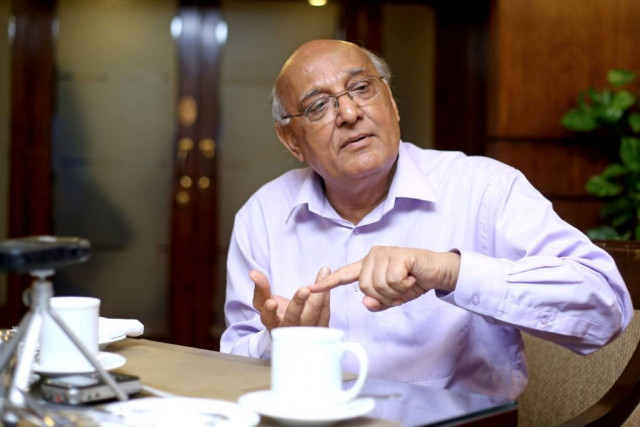
It was a cold winter night in Quetta. I was rushed to the Serena Hotel to attend a mela of sorts where there were going to be book stalls and food. As a nine-year-old, this urgency at my parents’ end seemed rather baffling especially because I had my newly-owned Mega Drive 2 to play with but I still complied with their demands expecting meat at Laal Kabab afterwards.
While I pretended to skim through the books and got hold of Shehzad Roy’s second album Darshan instead, my mother grabbed my head and turned it towards the lobby exit.
A middle-aged man in cotton pants and a sky blue shirt walked out as we paced towards him with the cassette clinched in my fist and an autograph book in my mother’s hand.
To a nine-year-old, he looked funny, with a few streaks of hair sliding over his shiny bald head and I couldn’t contain my giggle. He greeted my mother with a gentle smile and wrote in her book while glancing at me. His accusing eyes had questions in them and that’s when he asked me for the cassette.
After scanning the cassette closely, he said to my mother, “Aap ne bhi darshan kar liye” and then pointing towards his hair he looked at me and said, “Aur aapke bhi darshan hogaye.”
My mother tried to conceal her blushing with a smile and I just felt awkward about the chemistry in the air.
The year was 1997. Little did I know that I had been out-played by one of the most famous poets of his time, a pop icon for my mother’s reading generation, a playwright par excellence, the person whose ‘Mohabbat ki Nazm’ symbolised peak romance for newly-married couples and a lot more. That evening I also learned three important things; the meaning of the word Darshan; never to judge a book by its cover and that women don’t prioritise looks.
They don’t prioritise unkempt, self-indulgent, narcissistic men either but that’s a lesson among many more lessons that the Ali Zaryoon league of contemporary poets could ponder upon, following Amjad’s graceful exit from this world on Friday. He was 78 years old.
The name Amjad Islam Amjad had been in my mind because PTV would loudly announce the name of playwrights when advertising their TV productions.
Only a handful of those playwrights had found fame as independent poets as well, and amongst them, Amjad was clearly the leader of the pack. While PTV’s grace, success, elegance and signature Urdu drama flavour could be credited partially to Karachi writers hailing from UP families, it was the ground-breaking Waris(1979) from PTV Lahore centre that made a strong case for programming inspired by local feudal and tribal cultures.
The dogfights, the feudal clashes and the good old colonial hangover peppered with exceptional dialogue writing, placed the then debutante Amjad among the greats and Waris as perhaps the greatest-ever TV production from Pakistan.
Amjad went on to write a number of plays and even more long plays but the high intensity of Waris couldn’t be replicated, not in Amjad’s lifetime at least. He made up for it by being a widely followed columnist and a poet whose fandom spanned across generations and in some cases even surpassed his unmatchable contribution to TV.
Poets are often classified as either great or popular, and Amjad detested this comparison. Answering a question about his contemporary poet Jaun Elia, Amjad once said, “We shouldn’t be slotting poets into broad categories of great and popular. We know who decides who is popular but then who decides who is great? Can’t a poet be both great and famous at the same time?
Amjad braved that odd combination perhaps not as a poet but as a wordsmith at large. Waris is a testimony to how great a playwright he was and the mad following, especially among young girls, spoke volumes about his fame as a poet.
So much so that some of his more easily accessible and simpler poetry is often scoffed at by critics and aficionados as pandering to the thirst of ‘BA pass’ girls. Amjad wasn’t the only one accused of that, his friend Faraz, though a lot more famous and conventionally handsome than Amjad was also subjected to similar criticism.
Like Faraz, Amjad didn’t let the criticism get the best of him and despite his limitations as a poet, allowed his poetry to age like fine wine.
The latter half of his life saw Amjad drifting away from his signature themes of love and heartbreak and delving more into issues of the generational gap, philosophical ideas of time and space, technological utopia and even mortality.
His poem ‘Ali Zeeshan kay naam ek nazm’ is dedicated to his son and herein Amjad talks about how his son has opened his eyes to a new world and shall not be responsible for culminating his father’s old dreams. Similar poems such as Robot speak about his fear of turning into a robot and how the wonders of nature are enough to startle him and he won’t let any form of Artificial Intelligence steal his dreams and seasons and poetry from him.
Amjad wrote countless plays, and even more books but his most well-known poetry compilations include Barzakh, Saathwan Dar, Zara Phir Se Kehna, Khizaan Ke Aakhri Din The, Itnay Khwaab Kahan Rakhoonga, Mohabbat Aisa Dariya hai to name a few. He was also awarded the Sitaara-e-Imtiaz (1998) and Pride of Performance (1987) by the government of Pakistan and continued to frequent literature festivals and mushairas till his final days.
But above and beyond his uncountable services to the Urdu language and our culture, Amjad held onto tradition with the sincerity of a warrior and the generosity of a saint. You never saw him rubbish everything new as trash and everything old as the Holy Grail; he represented the junction where tradition and modernity met even if to the dismay of gatekeepers on both sides. Perhaps it was his flexibility as a writer and thinker that Pooja Bhatt and Shahi Hasan decided to collaborate with him for Bollywood’s timeless song ‘Lagi Tum Se Mann ki Lagan’ in the 1997 film Paap.
The song sung by Rahat Fateh Ali Khan opened a new chapter in Bollywood music. Later on, in 2013, Adnan Sami Khan turned Amjad’s famous ghazal Kisi Din into a song.
Amjad wrote:
"rāzoñ kī tarah utro mire dil meñ kisī shab
dastak pe mire haath kī khul jaao kisī din"
Today, moments after Amjad’s passing shook us all to the core, I tried to look back at the 9-year-old version of me and how my association with Amjad changed over the years. He became one of my go-to poets during the worst heartbreaks and his analysis of Anees and Dabeer helped me situate the significance of Marsiya in Urdu poetic tradition.
In Mann Ki Lagan also gave one of the biggest Bollywood bangers of my time.
As much as the nine-year-old in me would have still opted for playing Sunset Riders on Mega Drive 2 that day, I had no regrets about meeting him and partaking in a tradition that was passed down from mothers to sons, fathers to daughters, and Amjad had everything to do with that tradition.

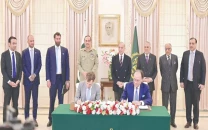
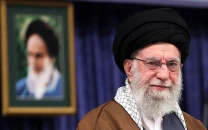

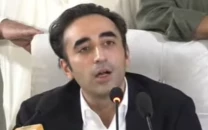
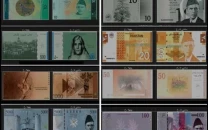





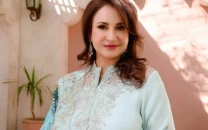
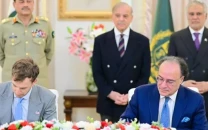






COMMENTS
Comments are moderated and generally will be posted if they are on-topic and not abusive.
For more information, please see our Comments FAQ